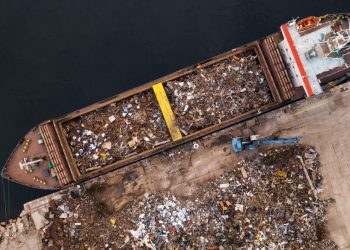It is a well-known fact that stress has a negative impact on physical and mental health. However, this is not always the case. Find out why psychologists Robert M. Yerkes and John Dillingham Dodson think so.
The Yerkes–Dodson law
The Yerkes–Dodson law is an empirical relationship between arousal and performance, originally developed by psychologists Robert M. Yerkes and John Dillingham Dodson in 1908. The law suggests that there is an optimal level of arousal for performance on a task: performance increases with physiological or mental arousal, but only up to a point. When levels of arousal become too high, performance decreases.
In simpler terms, the Yerkes–Dodson law states that for tasks of moderate complexity, there is an optimal level of arousal. Too little or too much arousal can impede performance. The curve illustrating this relationship typically resembles an inverted U-shape.
 Low arousal: No stress leads to boredom and reduced motivation, resulting in minimal effort and performance.
Low arousal: No stress leads to boredom and reduced motivation, resulting in minimal effort and performance.
Optimal arousal: Moderate stress enhances performance, providing clarity, alertness, and motivation. It’s the ideal balance for peak performance.
High arousal: Intense stress causes distraction and anxiety, impairing focus and performance, leading to suboptimal outcomes.
Understanding the curve and improving leadership
Factors affecting performance under pressure include many factors such as skill level, confidence, and task complexity. Everyone’s optimal stress level varies, influenced by individual traits and the nature of the task.
Understanding the Yerkes-Dodson law allows leaders to recognize that a certain level of stress or arousal can boost performance.
By identifying and managing the optimal stress level for each team member, leaders can help them operate at their peak performance. Other benefits of managing stress include:
#1 Improving decision making
When team members are operating at their optimal stress level, they are more likely to make balanced and effective decisions.
High stress can cloud judgment and lead to impulsive or irrational decision-making. For instance, the “fight-or-flight” reaction, which the body puts into action while under intense stress, can cause a reduction in cognitive capacity.
Conversely, low stress levels can result in complacency or lack of motivation. Motivated employees are crucial for an organization’s success as they quickly complete tasks, take action, and feel the need to perform well. Unmotivated employees can hinder teamwork, leave easily, and hinder a clear plan of goals. This can damage the organization’s reputation and long-term legitimacy, affecting its employer branding.
#2 Reducing fatigue
Consistently operating under high levels of stress can lead to burnout, which can negatively impact performance, morale, and overall well-being. By implementing the Yerkes-Dodson law, leaders can help prevent burnout by ensuring that team members are not constantly operating under excessive stress.
Excessive stress can result in fatigue, which, in turn, may put individuals in danger. For instance, As Andrew Russ, Marine Surveyor at Standard P&I Club has explained to SAFETY4SEA, fatigue has been found to be the major contributing factor in 82% of the 66 recorded groundings and collisions occurring between 0000 and 0600 hours, according to UK MAIB.
#3 Better team dynamics
Recognizing and respecting individual stress levels and preferences can foster a supportive and understanding team environment. By acknowledging that each team member has a unique optimal stress level, leaders can encourage open communication, collaboration, and cohesion within the team. This can improve teamwork, reduce conflicts, and enhance the overall team dynamic.
This becomes especially important in an environment such as the one onboard a vessel, where the lack of open communication not only isolates individuals, harming their mental health, but also fosters substandard safety.
As Britannia P&I Club explains, the ability to exchange information accurately, transparently, and promptly is fundamental to making well-informed decisions and preventing incidents.
Key steps in achieving optimal performance
Leaders can implement the Yerkes-Dodson law in the following ways to optimize performance:
- Understand individual stress levels: Recognize that the optimal stress level varies among individuals and understand how different team members respond to stress.
- Set appropriate challenges: Assign tasks that match the skill level of team members. For tasks that are too easy, employees may become bored, and for tasks that are too difficult, they may become overwhelmed.
- Provide support and resources: Offer the necessary resources and training to help employees build their skills and confidence to meet challenges effectively.
- Encourage self-awareness: Encourage employees to identify their optimal stress levels and provide opportunities for them to reflect on and adjust their stress levels accordingly.
- Promote self-care: Emphasize the importance of self-care practices such as regular breaks, physical exercise, and relaxation techniques to help employees manage their stress levels.
- Regular check-ins: conduct regular check-ins with employees to discuss their workload, stress levels, and any support they may need to maintain optimal performance.
Overall, implementing the Yerkes-Dodson law demonstrates that leaders prioritize the well-being and mental health of their employees. By creating an environment where team members can operate at their optimal stress levels, leaders can contribute to increased job satisfaction, morale, and a positive organizational culture. This, in turn, can lead to higher levels of engagement, commitment, and loyalty among team members.































































